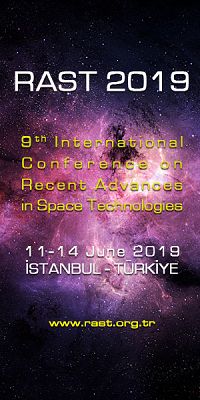›RAST 2019
Preamble:
At the Rio+20 United Nations Conference in June 2012, the world’s governments agreed to produce a set of Sustainable Development Goals (SDGs) which should reach all societies on the globe. They will apply to developed and developing countries alike and will concern the Earth system as well as people. This Agenda is a plan of action for people, planet and prosperity. Resolutions adopted by the United Nations General Assembly on 25 September 2015 by the Heads of State and Government and High Representatives, meeting at the United Nations Headquarters in New York 25-27 September 2015 as the Organization celebrated its seventieth anniversary, have decided on new global SDG. The new list has 17 different SDGs each clearly defined and including several tasks. These Goals and targets lay out a supremely ambitious and transformational vision and they require that all stakeholders and their networks implement concrete policies, plans, programs, projects and actions to promote sustainable development and eradicate poverty.
Objectives: RAST 2019 has the main objective of providing a forum for the presentation and review of developments in space, as well as all aspects of recent developments in space technologies. A focus is desired on a historical and current evaluation of the economic aspects of space technology and how it can further contribute to development in its aspects with specific emphasis on how to reach the Sustainable Development Goals 2030. Presentations are encouraged from government and international space agencies as well as the private sector.
Participants: As in previous RAST Conferences, RAST 2019 is intended to be a forum for the exchange of recent research results and ideas in space technologies and applications; this time with specific reference to space economy. It should be of interest to a wide range of participants from government agencies, relevant international institutions, universities, research organizations, space companies, as well as media and the general public. The conference should serve as an opportunity for networking and fruitful exchange with fellow participants on topics of mutual interest.
Topics: In general, contributions regarding all aspects of recent developments in space technologies are welcome. Presentations addressing the specific theme of RAST 2019 are especially encouraged. Papers may fall under, but not be limited to the following topics:
• Tackling poverty and unequalities from space
• Space to fight against climate change and global warming
• Renewable energy from space
• Space technologies to achieve zero hunger
• Space technologies for water purification
• Economic aspects of space, review and prospects
• Softwares and software techonologies for space vehicles and ground systems
• Putting the block chain in space
• Interplanetary Contamination and Extraterrestrial Life
• Launch and Re-entry
• New and emerging private space initiatives and startups
• Space tourism including legal physiological and other aspects
• New human habitable spacecraft, space capsules
• Space technologies that contribute to public safety, and humanitarian efforts in the face of both natural, man-made threats
• Earth observation projects and programs geared especially toward prediction, mitigation, monitoring of natural disasters
• Computational modeling for design, development and control of space vehicles
• Development of new and affordable launch capabilities
• Small satellites, micro, nano and pico satellites, cubesats
• New and novel instrumentation for various spacecraft functions, including ADCS, power, vehicle control, space robotics, etc.
• Design and construction of space structures, space systems, materials, simulation and testing
• Additive manufacturing technologies for space applications
• Applications of nanotechnology in space
• New remote sensing technologies and applications, i.e. hyperspectral sensing, SAR, applications in environment, agriculture, etc.
• Big Data from Space: Exploration of different types and huge amounts of data generated by space assets
• Asteroid mining, legal and technological aspects
• Developments in GNSS, interoperability, new applications, including regional positioning systems
• Satellite time and frequency transfer systems
• Advanced technologies for satellite communications
• Scientific applications, deep space, near-earth space, space weather, microgravity
• Computational modeling of material processing and other flow physics associated processes under microgravity conditions
• International cooperation, especially among spacefaring and developing countries
• Space law, space medicine, and benefits of information available from space (social, educational, politics, health and others)
• Visions of the future of space science, multiverses, black holes, etc.
Track this event on your Apple calendar














 Turkey
Turkey